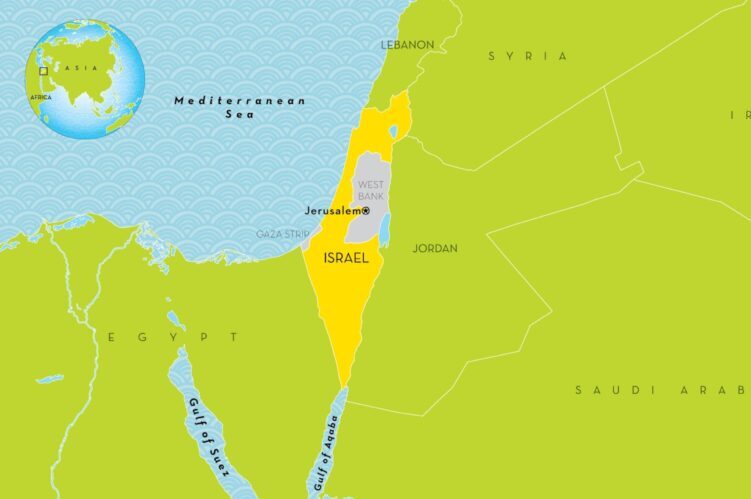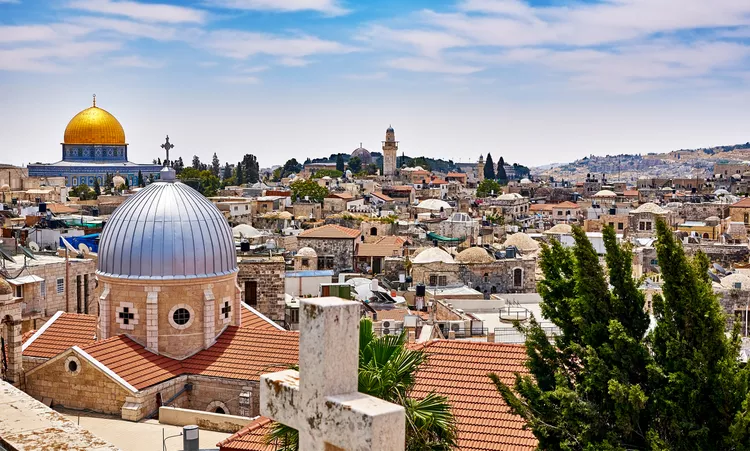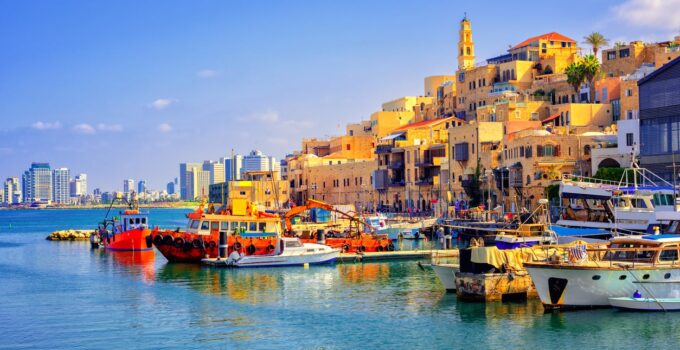Planning a trip to Israel? Consider guided tours for insights, unique experiences, and expert itineraries. Learn about geography, climate, transportation, customs, cuisine, and safety for a worry-free journey.
Before embarking on your journey, consider exploring guided Israel tours as they can provide you with valuable insights, access to unique experiences, and the convenience of expertly planned itineraries, enhancing your overall travel experience. There are several travel essentials that every traveler should know before embarking on their journey.
From understanding the country’s geography and climate to navigating its transportation system, and from learning about Israeli customs and etiquette to exploring its unique cuisine, this article will provide you with all the information you need for a smooth and enjoyable trip. Additionally, we will also discuss safety and health considerations to ensure a worry-free experience.
Page Contents
Understanding Israel’s Geography and Climate

Source: kids.nationalgeographic.com
Israel, located on the southeastern shore of the Mediterranean Sea, is a country with diverse landscapes and a rich history. From the lush greenery of the Galilee region to the sprawling deserts of the Negev, Israel offers a variety of experiences for travelers. The climate in Israel is characterized by hot, dry summers and mild, rainy winters. It is important to consider the weather patterns and choose the best time to visit based on your preferences.
Key Regions to Explore in Israel
When visiting Israel, there are several key regions worth exploring. The vibrant city of Tel Aviv, known for its bustling nightlife and beautiful beaches, is a must-visit destination. Jerusalem, Israel’s capital, is a city of historical significance and is home to iconic sites such as the Western Wall and the Church of the Holy Sepulchre. Additionally, the ancient port city of Jaffa, the Dead Sea, and the vibrant city of Haifa are other regions that offer unique experiences.
Weather Patterns and Best Times to Visit

Source: deliciousisrael.com
The best time to visit Israel depends on the type of experience you are seeking. If you are fond of warm weather and outdoor activities, the summer months (June to August) are ideal. However, it is important to note that these months can be quite hot, especially in the southern parts of the country.
Spring (March to May) and autumn (September to November) offer more moderate weather, making them great times to visit. Winters (December to February) are mild and rainy, but they still provide opportunities to explore the country’s cultural and historical attractions.
Navigating Israel’s transportation system is relatively easy, thanks to its well-developed infrastructure. Public transportation options, such as buses and trains, are readily available and provide convenient ways to travel between cities and regions.
Public Transportation Options
The public transportation system in Israel is reliable and affordable. Buses operate throughout the country and connect major cities, towns, and tourist attractions. Additionally, Israel’s railway network offers a comfortable and scenic way to travel between cities, with trains running from north to south.
Tips for Renting and Driving a Car in Israel

Source: beinharimtours.com
If you prefer more independence and flexibility, renting a car is a great option. However, it is important to be aware of the rules and regulations regarding driving in Israel. Make sure to have an international driver’s license, as it may be required by rental companies. Pay attention to parking regulations and be cautious while driving, as Israeli roads can be busy and drivers in the country can be assertive.
Essential Israeli Customs and Etiquette
Israeli customs and etiquette may differ from what you are accustomed to, so it is important to be aware of the social norms and behaviors in the country.
Social Norms and Behaviors
Israelis are known for their directness and openness, which can sometimes be misconstrued as rudeness. It is common for people to engage in lively discussions, and it is acceptable to interrupt others in conversations. Additionally, punctuality is highly valued, so it is important to be on time for scheduled appointments or meetings.
Religious Sensitivities and Practices

Source: tripsavvy.com
Israel is a country with a diverse religious landscape, and religious sensitivities should be respected. When visiting religious sites, it is important to dress modestly and adhere to any specific rules or practices. Women may be required to cover their shoulders or wear head coverings in certain areas. Additionally, it is customary to remove your shoes when entering certain religious buildings and to be mindful of your behavior to avoid causing offense.
Israel’s Unique Cuisine and Dining Etiquette
Israel is known for its delicious and diverse cuisine, influenced by various cultures and traditions. Exploring the local food scene is a must-do for any traveler visiting the country.
Must-Try Traditional Foods
When it comes to Israeli cuisine, there are several must-try dishes. Hummus, falafel, and shawarma are popular street food options that offer a true taste of the country. Additionally, sabich, a sandwich filled with fried eggplant and various toppings, and shakshuka, a dish made with eggs poached in a flavorful tomato sauce, are also favorites among locals and tourists alike.
Dining Etiquette and Tips
Israeli dining etiquette is generally casual, but there are a few customs to keep in mind. It is common to share dishes, so don’t hesitate to try a variety of flavors. It is also customary to leave a small tip, typically around 10% of the bill, for good service. If you have dietary restrictions or preferences, don’t worry – many restaurants offer vegetarian and vegan options, as well as dishes suitable for those with food allergies.
Safety and Health Considerations in Israel

Source: emacare.com
Ensuring your safety and well-being during your trip to Israel is crucial. As with any travel destination, it is important to be aware of general safety tips and take necessary health precautions.
General Safety Tips for Travelers
While Israel is generally a safe country to visit, it is recommended to stay updated on current events and follow any travel advisories issued by your government. It is advisable to avoid areas near the border with Syria, Lebanon, and Gaza due to potential security risks. Additionally, be mindful of your belongings and avoid displaying signs of wealth to minimize the risk of theft.
Health Precautions and Medical Facilities
Before traveling to Israel, it is advisable to check if any vaccinations are required or recommended. It is also recommended to have travel insurance that covers medical emergencies. Medical facilities in Israel are of a high standard, and English-speaking doctors are widely available, especially in major cities.
By familiarizing yourself with Israel’s geography, climate, transportation system, customs, cuisine, and safety considerations, you will be well-prepared to embark on a memorable journey through this fascinating country. Whether you are interested in history, culture, food, or adventure, Israel has something to offer for every traveler. So pack your bags and get ready to explore the wonders of the Holy Land!





